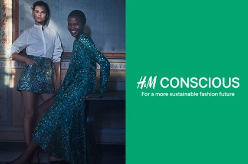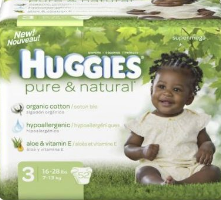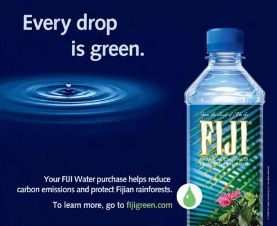Are you being Greenwashed?
- May 1, 2019
- 2 min read
In April, we are all reminded to give back to our Earth, and be more mindful of what we consume. But it turns out we may be getting fooled by the green labels on products which promote “eco-friendly” or “100% Natural”.

What is “Greenwashing”?
If you have never heard this term before, you may be asking: What is “greenwashing”? And why am I being accused of this?
Don’t panic, it’s not your fault. I have fallen a victim to it as well, and most likely everyone can say they have too.
Basically, greenwashing is when a product or business says they're green or eco-friendly, but they spend more resources on making sure you know that, rather than actually implementing this into their business practices. (according to goingzerowaste.com)
For example, let’s say you are walking in Target for a new skin care product, and something catches your eye. The packaging says: “eco-friendly”, “sustainable”, “100% natural” !!! Unfortunately, most of the time these statements are false and mislead the consumers. They are only marketing ploys in the hopes to increase sale. Because hey I’m not gonna lie, It makes you feel pretty good to buy something that screams “I’m good for the earth”. But these products usually ignore to advertise the ways in which they actually contribute to waste which pollutes the planet more than helping it.
Why is this a problem?
So you may be thinking, is this really that big of a deal? Well, by ignoring the ways in which companies mislead consumers, we are creating more opportunities for them to feed us falsehoods in order to increase their profits.
Greenwashing hides the larger problem. Marketers use the popular eco-friendly/natural/green movement to their advantage, in order to sell more products, which ironically, contribute to pollution.
How to avoid it
When buying products with these kinds of advertising, follow these steps to be sure you are not being greenwashed:
If you see an awesome “green claim”, double check it’s legitimacy by heading to the product’s website. If their explanations are very vague and unspecific, it is most likely greenwashing.
Is the ad for the product distracting you from the bigger picture? Big companies love to create ads which pull on your heart strings. Have you ever seen the commercial for Dawn dish soap and how they cleaned those poor ducks from the oil? Tragic right? But if it weren’t for the horrible practices on their part, the ducks would not be caught in an oil spill in the first place!
Watch out for misleading claims. Is there any valuable information presented, or are they just using words that look and sound nice?
Watch out for misleading graphics. You may see a product decorated with greenery: trees, flowers, birds, how nice!! But these mean nothing. They are sometimes just there to make you feel as if you are buying something green.
When in doubt….. google it.
Greenwashed products
Here are some examples of products that have been Greenwashed:
Ok, the McDonald's one is a joke. But hey, if McDonald’s used this as their logo and promoted “100% natural", wouldn’t you feel a little better about eating there?














Comments